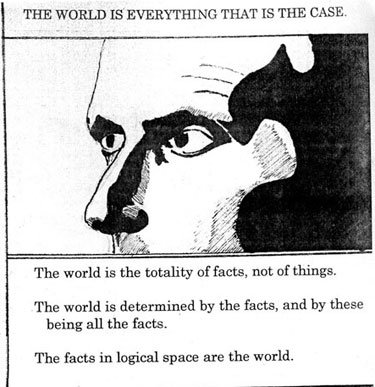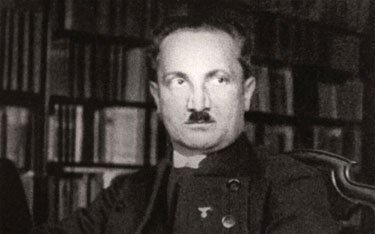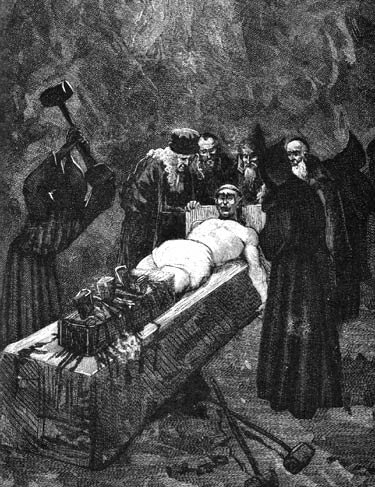Category Archive 'Ludwig Wittgenstein'
28 Dec 2018


Ludwig Wittgenstein was so influential a philosopher that, back when I was in college, Philosophy instructors on both sides of the Atlantic were notoriously prone to imitate his very mannerisms.
I’d say myself that Wittgenstein’s fame, influence, and popularity were ultimately based not so much on either the logical force of his arguments or his definitive contributions to Philosophy, but rather upon his eccentric personality, his striking good looks, and the literary appeal of his aphoristic statements.
Wittgenstein was a tremendously Romantic figure, who wrote the Tractatus, the work he asserted at the time that resolved all the questions of Philosophy, while fighting as an artillery officer in the trenches of WWI.
Born to a fabulously wealthy and conspicuously talented noble family (of Jewish origin), Ludwig Wittgenstein renounced all his inherited wealth and lived a famously tormented, eremitical life of the greatest simplicity and abstemiousness. (He was presumably simultaneously battling against his homosexuality and atoning for his rare and reluctant surrenders to those impulses.)
Having, in his own view, solved all the main issues of Philosophy, he simply walked away from a prestigious teaching position at Cambridge, and the comradeship of Bertrand Russell and G.E Moore, to work as a primary schoolteacher in a primitive rural village.
He concluded that he had been mistaken, and that he had not actually solved all of Philosophy’s problems, so he returned reluctantly to Cambridge, where he endeavored to “cure” people of Philosophy, trying to persuade his students to do something useful instead.
His engagement with ideas was intense and passionate, and he could be seen to be struggling passionately with his own thoughts as he conducted his classes. However ultimately inconclusive his results, his prose was poetical and aphoristic, yet also compelling, and attempts to follow, or merely imitate, his mode of philosophizing became the dominant academical approach throughout the English-speaking world.
I like Wittgenstein myself every bit as much as the next fellow, and I normally buy any book about him at all, but I was dismayed last night to come upon (Gawd help us!) the abridged reprint edition of F.A. Flowers III and Ian Ground’s Portraits of Wittgenstein, a collection of 50 portraits of, and reflections upon, dear old Ludwig, going for $255 in hardcover and $37 in stinking paperback.
The 2016 original two-volume hardcover edition (obviously the one you want) goes these days at the lowest for around 500 clams.
You can picture Wittgenstein shaking his head, and launching into a condemnatory rant.
———————————
Frank Freeman’s review here.
Wittgenstein took philosophy personally; it was a struggle of intellectual integrity, clear thinking, sincerity. And because Wittgenstein was such a charismatic figure, this meant that his philosophy was inextricable from his life. It was as if he was all alone in the world and everyone else witnesses of his struggle.
This is why a book such as Portraits of Wittgenstein makes such compelling reading. First published in 2016 in two volumes (1138 pages), the book has now been cut in half by its editors, making it more accessible. It is a collection of essays written by people who knew or came into contact with Wittgenstein over the years. Most people who did so either hated him or loved him; almost all feared him. John Maynard Keynes, a friend, wrote about Wittgenstein, “God has arrived. I met him on the 5:15 train.†Even someone, such as this writer, who thinks there are philosophical problems, can find himself fascinated by, even rapt in this kaleidoscopic portrait of a genius, a saint-like holy fool of philosophy who lived his philosophy to the uttermost.
01 Nov 2017

1
The world is everything that is the case.
Click on the number of the theorem and that portion of the Tractatus automatically types out for you. What is even cooler is: you get a choice of language and edition.
26 Jul 2016


By Nathan Wainstein
20 Apr 2016


That skunk Heidegger
From Scientific Philospher (who mentions 30, but only list 10 and offers no link, but I found them at Flavorwire).
Bertrand Russell on Aristotle
“I do not agree with Plato, but if anything could make me do so, it would be Aristotle’s arguments against him.â€
Jean-Paul Sartre on Albert Camus
“Camus… a mix of melancholy, conceit and vulnerability on your part has always deterred people from telling you unvarnished truths. The result is that you have fallen prey to a gloomy immoderation that conceals your inner difficulties and which you refer to, I believe, as Mediterranean moderation. Sooner or later, someone would have told you this, so it might as well be me.â€
Camille Paglia on Michel Foucault
“The truth is that Foucault knew very little about anything before the seventeenth century and, in the modern world, outside France. His familiarity with the literature and art of any period was negligible. His hostility to psychology made him incompetent to deal with sexuality, his own or anybody else’s. … The more you know, the less you are impressed by Foucault.†…
Bertrand Russell on Georg Hegel
“Hegel’s philosophy is so odd that one would not have expected him to be able to get sane men to accept it, but he did. He set it out with so much obscurity that people thought it must be profound. It can quite easily be expounded lucidly in words of one syllable, but then its absurdity becomes obvious.â€
Noam Chomsky on Slavoj Žižek
“There’s no ‘theory’ in any of this stuff, not in the sense of theory that anyone is familiar with in the sciences or any other serious field. Try to find… some principles from which you can deduce conclusions, empirically testable propositions where it all goes beyond the level of something you can explain in five minutes to a 12-year-old. See if you can find that when the fancy words are decoded. I can’t. So I’m not interested in that kind of posturing. Žižek is an extreme example of it. I don’t see anything to what he’s saying.â€
Slavoj Žižek on Noam Chomsky
“Well, with all deep respect that I do have for Chomsky, my… point is that Chomsky, who always emphasizes how one has to be empirical, accurate… well, I don’t think I know a guy who was so often empirically wrong.â€
Karl Popper on Ludwig Wittgenstein
“Not to threaten visiting lecturers with pokers.†(On being challenged by a poker-wielding Wittgenstein to produce an example of a moral rule; the discussion degenerated quickly from there.)
Karl Popper on Martin Heidegger
“I appeal to the philosophers of all countries to unite and never again mention Heidegger or talk to another philosopher who defends Heidegger. This man was a devil. I mean, he behaved like a devil to his beloved teacher, and he has a devilish influence on Germany… One has to read Heidegger in the original to see what a swindler he was.â€
Arthur Schopenhauer on Georg Hegel
“Hegel, installed from above, by the powers that be, as the certified Great Philosopher, was a flat-headed, insipid, nauseating, illiterate charlatan who reached the pinnacle of audacity in scribbling together and dishing up the craziest mystifying nonsense.â€
11 Dec 2014

Originally published 24 April 2009.

Real torture, a very different thing from the infliction of mild and temporary discomfort or a slap.
Torture
[adopted from the French torture (12th century Dictionnaire général de la langue français Hatzfeld & Darmesteter, 1890-1900), adaptation of Latin tortura twisting, wreathing, torment, torture; from torquēre, tort- to twist, to torment]
1. The infliction of excruciating pain, as practised by cruel tyrants, savages, brigands, etc. from a delight in watching the agony of a victim, in hatred or revenge, or as a means of extortion; specifically judicial torture, inflicted by a judicial or quasi-judicial authority, for the purpose of forcing an accused or suspected person to confess, or an unwilling witness to to give evidence or information; a form of this (often in plural). To put to (the) torture, to inflict torture upon, to torture. …
historical examples of usage omitted
2. Severe or excruciating pain or suffering of mind or body; anguish, agony, torment; the infliction of such. …
figurative meanings omitted
— Oxford English Dictionary, 1971, p. 3357.
————————————————-
The left has loudly and persistently accused the Bush Administration of violating International Law, the US Constitution, the Geneva Convention, and conventional standards of human decency by torturing detainees.
These accusations have been advanced by a large variety of allied voices at every level of print and electronic publication employing the same inflammatory characterizations, the same reliance on preassumed conclusions, and the same intimidating tone of exaggerated emotionalism.
The left’s punditocracy naturally avoids ever questioning whether modest forms of coercion, such as waterboarding, slaps to the face or abdomen, sleep deprivation, and deliberately-caused temperature discomfort, etc., carefully and deliberately calculated to stop short of inflicting any enduring harm to the subject, actually do rise to the level of meeting the normal (non-figurative) definition of torture.
A slap to the face may be painful, humiliating, and unpleasant, but it is really “excruciating” or “severe?” Most of us (of the older generation, at least) actually have been slapped in the face in childhood by other children and even by adults. My elementary school principal did not like an angry letter to the editor about her school policies I had composed in the 8th grade and slapped me across the face. I can’t say that I ever thought of myself as a torture victim or an appropriate case for an investigation by some International Committee on Human Rights.
When I read over the list of coercive measures sanctioned by the Bush Administration for use in extracting information from only three of the most important participants in a conspiracy which brought about the violent deaths of more than 3000 innocent American civilians and which was actively in the process attempting further such attacks on an even greater scale, most of them remind me of the ordinary cruelties inflicted on small children commonly by schoolyard bullies.
Waterboarding amounts to the victim being briefly deprived of breath by facial immersion in an attempt to use fear of drowning to compel cooperation. Is there really anyone in America who didn’t have his or her head held underwater at least once by a larger bully or childhood playmate?
Abu Zubaydah was placed by CIA interrogators into close propinquity with a caterpillar. I’m afraid that when I search my own conscience I can recall dropping a caterpillar down the back of at least one female classmate back in the third grade myself.
The controversial coercive interrogation methods were employed by the Bush Administration against, we must remember, only three spectacularly guilty murderers whose hands were dripping with innocent blood, and were clearly not excruciating. They were capable of, and intended to, induce discomfort, probably even anguish, but not agony.
Severe is a relative term, I suppose. But, in the context of forcible interrogation, surely a severe form of coercion would be a practice capable of producing permanent injury or death.
What traditionally defined real torture, more specifically than the OED’s definition, was the permanence of the result. Someone would not be refered to as “tortured,” who had been beaten up or simply slapped around. A person referred to as having been tortured would have to have suffered, at the very least, lasting serious injury.
Torture has always conceptually involved pieces of one’s anatomy being cut or burned, fingernails pulled out, bones broken, and joints dislocated. Having your head dunked or your face slapped or being confronted by a caterpillar may be unpleasant, but only in the context of figurative speech is it torture.
A common perspective on the subject is that real torture has to include an ultimate threat of ending with death. The audience finds credible this viewpoint as illustrated in the 1941 John Huston film version of The Maltese Falcon.
Sam Spade finding himself unarmed in the presence of Caspar Guttman and his criminal allies successfully defies threats of torture because his adversaries can’t afford to kill him.
Joel Cairo: You seem to forget that you are not in a position to insist upon anything.
Caspar Cuttman: Now, come, gentlemen. Let’s keep our discussion on a friendly basis.
There certainly is something in what Mr. Cairo said…
Sam Spade: If you kill me, how are you gonna get the bird? If I know you can’t afford to kill me, how’ll you scare me into giving it to you?
Caspar Guttman: Sir, there are other means of persuasion besides killing and threatening to kill.
Sam Spade: Yes, that’s…That’s true. But none of them are any good unless the threat of death is behind them.
You see what I mean?
If you start something, I’ll make it a matter of your having to kill me or call it off.
Caspar Guttman: That’s an attitude, sir, that calls for the most delicate judgement on both sides. Because, as you know, in the heat of action, men are likely to forget where their best interests lie, and let their emotions carry them away.
Look at the first definition again. The coercive tactics employed by the Bush Administration did not produce “excruciating pain.” The US Administration was not a cruel tyranny (whatever the infantile left may chose to think). Our intelligence officers were not savages or brigands, though the three interrogation subjects certainly were. The discomforts inflicted on the three interrogation subjects were not done out of hatred or revenge, but to protect innocent lives. The only small portion of the Oxford Dictionary’s definition which fits is the purpose of causing unwilling witnesses to provide information. But that is only a descriptive portion of the definition, and the vital and key “excruciating pain” element of the definition is completely missing.
QED: The coercive tactics employed by the Bush Administration against three Al Qaeda detainees were not torture, not by the best dictionary definition of the word, and not by our conventional “ordinary language” understanding of the meaning of the word.
23 Jan 2013


Ludwig Wittgenstein
Daniel Dennett is a distinguished philosopher, at least, with respect to Philosophy of Mind. As a kind of philosophical sideline, however, he follows the unfortunate example of certain other contemporary professors and operates as a polemicist on behalf of bien pensant liberalism.
Dennett recently offered this supposedly well-tempered response to the horrifying militarism of the barbarous administration of George W. Bush.
Suppose that we face some horrific, terrible enemy, another Hitler or something really, really bad, and here’s two different armies that we could use to defend ourselves. I’ll call them the Gold Army and the Silver Army; same numbers, same training, same weaponry. They’re all armored and armed as well as we can do. The difference is that the Gold Army has been convinced that God is on their side and this is the cause of righteousness, and it’s as simple as that. The Silver Army is entirely composed of economists. They’re all making side insurance bets and calculating the odds of everything.
Which army do you want on the front lines? It’s very hard to say you want the economists, but think of what that means. What you’re saying is we’ll just have to hoodwink all these young people into some false beliefs for their own protection and for ours. It’s extremely hypocritical. It is a message that I recoil from, the idea that we should indoctrinate our soldiers. In the same way that we inoculate them against diseases, we should inoculate them against the economists’—or philosophers’—sort of thinking, since it might lead to them to think: am I so sure this cause is just? Am I really prepared to risk my life to protect? Do I have enough faith in my commanders that they’re doing the right thing? What if I’m clever enough and thoughtful enough to figure out a better battle plan, and I realize that this is futile? Am I still going to throw myself into the trenches? It’s a dilemma that I don’t know what to do about, although I think we should confront it at least.
————————–
I could not avoid reflecting that, philosophically speaking, Mr. Dennett is a member of the school of Analytic Philosophy founded, twice essentially, in the course of the first half of the last century by Ludwig Wittgenstein.
Wittgenstein was, indubitably, a neurasthenic and neurotic, a homosexual, a crank and a wet liberal goo-goo, hostile to wealth, prone to romanticizing the poor, indifferent or actively hostile to formality and tradition (try to find a photograph of Wittgenstein wearing a tie). But all his personal demons, all the balderdash that Ludwig Wittgenstein embraced did not prevent him from volunteering to serve as an officer in Austrian Army when WWI broke out.
Wittgenstein served as an artillery officer, fought on both the Russian and Italian fronts, and was awarded three major Imperial Austrian medals for valor. One commendation spoke of “[h]is exceptionally courageous behaviour, calmness, sang-froid, and heroism”, which had “won the total admiration of the troops.” Wittgenstein actually wrote much of the Tractatus Logico-Philosophicus while serving in the trenches.
What has happened to separate Dennett from Wittgenstein? Much more indoctrination in bad Moral Philosophy and religious heresy from which not even professional training and expertise in Analytic Philosophy suffices to inoculate the potential victim and secure immunity.
C.S. Lewis wrote a famous essay, titled The Abolition of Man, in which he describes the mind-and-soul-numbing impact of a typical liberal elementary school textbook (which he calls “The Green Book,” which systematically denies the objectivity of values, which –in other words– trains the young to be (sophisters, calculators, and) “economists,” i.e. liberal materialist conformists like Dennett.
The operation of The Green Book and its kind is to produce what may be called Men without Chests. It is an outrage that they should be commonly spoken of as Intellectuals. This gives them the chance to say that he who attacks them attacks Intelligence. It is not so. They are not distinguished from other men by any unusual skill in finding truth nor any virginal ardour to pursue her. Indeed it would be strange if they were: a persevering devotion to truth, a nice sense of intellectual honour, cannot be long maintained without the aid of a sentiment which Gaius and Titius [Lewis’s fictional names of the “Green Book”‘s authors] could debunk as easily as any other. It is not excess of thought but defect of fertile and generous emotion that marks them out. Their heads are no bigger than the ordinary: it is the atrophy of the chest beneath that makes them seem so.
And all the time—such is the tragi-comedy of our situation—we continue to clamour for those very qualities we are rendering impossible. You can hardly open a periodical without coming across the statement that what our civilization needs is more ‘drive’, or dynamism, or self-sacrifice, or ‘creativity’. In a sort of ghastly simplicity we remove the organ and demand the function. We make men without chests and expect of them virtue and enterprise. We laugh at honour and are shocked to find traitors in our midst. We castrate and bid the geldings be fruitful.
Your are browsing
the Archives of Never Yet Melted in the 'Ludwig Wittgenstein' Category.
/div>

Feeds
|

















